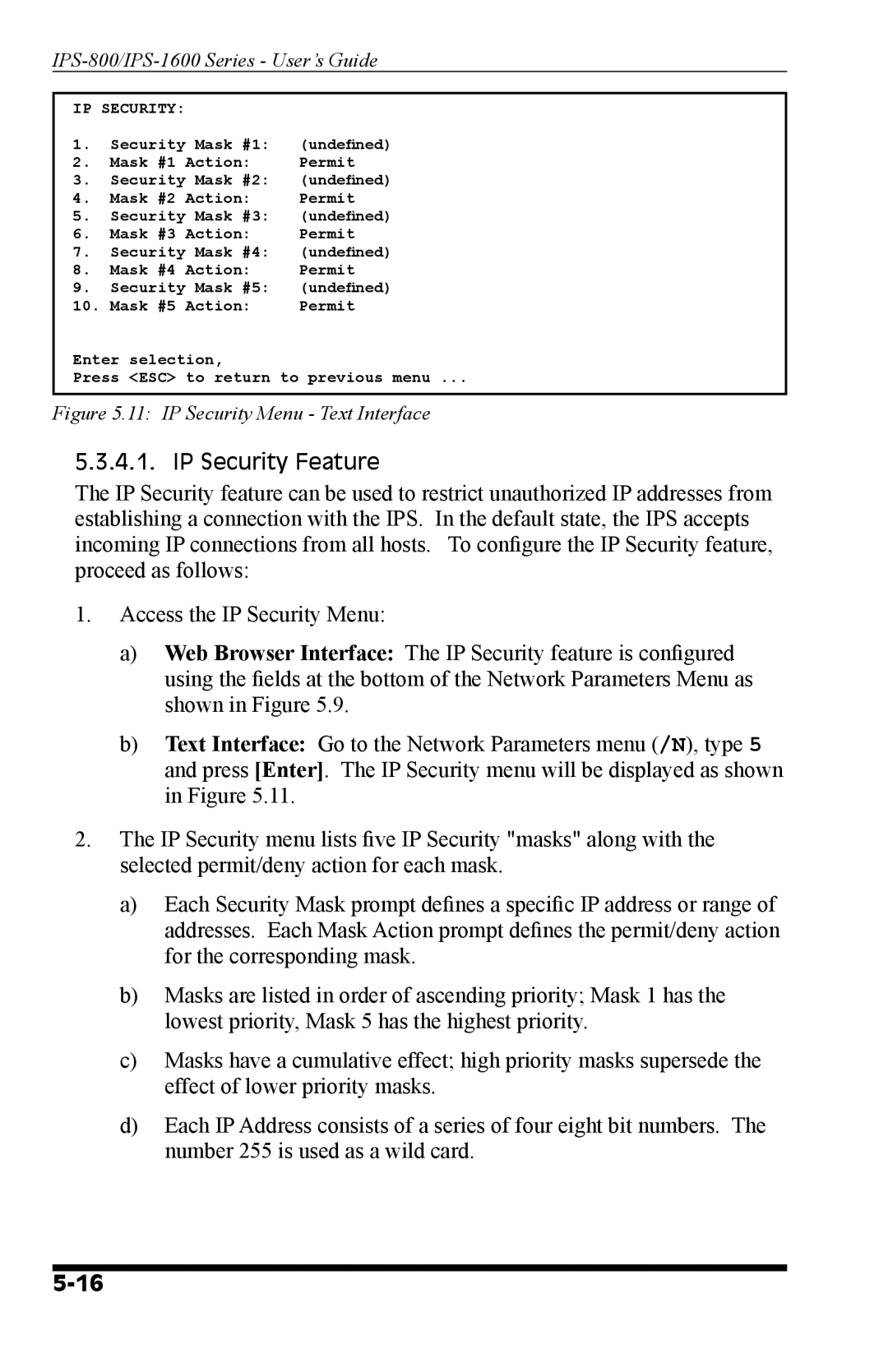
IPS-800/IPS-1600 Series - User’s Guide
IP SECURITY:
1.Security Mask #1: (undefined)
2.Mask #1 Action: Permit
3.Security Mask #2: (undefined)
4.Mask #2 Action: Permit
5.Security Mask #3: (undefined)
6.Mask #3 Action: Permit
7.Security Mask #4: (undefined)
8.Mask #4 Action: Permit
9.Security Mask #5: (undefined)
10.Mask #5 Action: Permit
Enter selection,
Press <ESC> to return to previous menu ...
Figure 5.11: IP Security Menu - Text Interface
5.3.4.1. IP Security Feature
The IP Security feature can be used to restrict unauthorized IP addresses from establishing a connection with the IPS. In the default state, the IPS accepts incoming IP connections from all hosts. To configure the IP Security feature, proceed as follows:
1.Access the IP Security Menu:
a)Web Browser Interface: The IP Security feature is configured using the fields at the bottom of the Network Parameters Menu as shown in Figure 5.9.
b)Text Interface: Go to the Network Parameters menu (/N), type 5 and press [Enter]. The IP Security menu will be displayed as shown in Figure 5.11.
2.The IP Security menu lists five IP Security "masks" along with the selected permit/deny action for each mask.
a)Each Security Mask prompt defines a specific IP address or range of addresses. Each Mask Action prompt defines the permit/deny action for the corresponding mask.
b)Masks are listed in order of ascending priority; Mask 1 has the lowest priority, Mask 5 has the highest priority.
c)Masks have a cumulative effect; high priority masks supersede the effect of lower priority masks.
d)Each IP Address consists of a series of four eight bit numbers. The number 255 is used as a wild card.
